Mr. Darcy! Miss Bennet!? And a #Giveaway
Lately, I’ve been obsessively watching Pride and Prejudice (the one with Colin Firth as Mr. Darcy). I’m not a particularly visual person and am far more likely to be blown away by a book, but I’m enjoying every nuance of this version of P&P (which has probably spoiled me for all the others). It’s the only movie/series where I was so impressed that I looked up the bios of all the actors on IMDB.
Anyway, one of the many, many things I enjoy about it is the formality. I love all the bowing and curtseying and the polite forms of address. More and more, in our society people are addressed by a first name or nickname. I’m fine with modern-day informality, but sometimes it feels awkward writing the formal manners of the 19th Century while living the informal ones of the 21st. Does that make any sense?
For example, in P&P, Mrs. Bennet never calls her husband by his first name. He is always Mr. Bennet, even at home in extremely informal circumstances (such as when she’s ranting at him). I simply cannot bring myself to write a married couple who address each other as Mr. and Mrs., or Lord and Lady X. I’ve tried, but my fingers refuse to type it. It’s just too weird for me.
On the other hand, it’s easy to write a very formal hero and heroine who are forced into marriage when they have just met (that’s Miles and Melinda in To Kiss a Rake). Or when a couple are hurt and infuriated and therefore frigidly polite with one another even though they’ve been intimate in the past (that’s Bridget and Colin in the sequel, which I just finished writing, YAY!). But when my characters behave formally to friends and acquaintances they’ve known for ages, it doesn’t feel natural. I try to write it that way, but I don’t always succeed.
So…let me ask you, whether you’re a reader, writer, or both, how do you feel about formal behavior in historical romances? Is formality annoying, or does it seem realistic? Do you like informality, or does it drive you nuts? Or do you not notice it either way—or even care? I’ll give an e-copy of my new release, To Kiss a Rake, to one lucky commenter.
~~~
WHEN A LADY IS ABDUCTED BY MISTAKE…
Melinda Starling doesn’t let ladylike behavior get in the way of true love. She’s secretly helping with an elopement, when she’s tossed into the waiting coach and driven away by a notorious rake.
REVENGE REALLY DOESN’T PAY.
Miles Warren, Lord Garrison, comes from a family of libertines, and he’s the worst of them all—or so society believes. When Miles helps a friend to run away with an heiress, it’s an entertaining way to revenge himself on one of the gossips who slandered him.
Except that he drives off with the wrong woman…and as if that wasn’t scandalous enough, he can’t resist stealing a kiss.
http://www.amazon.com/dp/B00ZAY07OK/
http://www.amazon.co.uk/dp/B00ZAY07OK/
http://www.amazon.ca/dp/B00ZAY07OK/
http://www.amazon.com.au/dp/B00ZAY07OK/
Connect with Barbara
http://www.facebook.com/barbara.monajem
http://twitter.com/BarbaraMonajem
https://www.goodreads.com/author/list/3270624.Barbara_Monajem
http://www.barbaramonajem.com/
http://barbaramonajem.blogspot.com

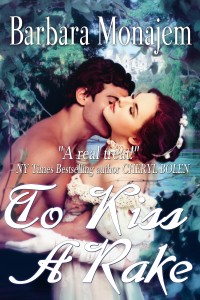
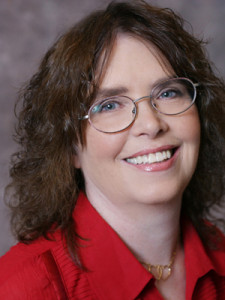

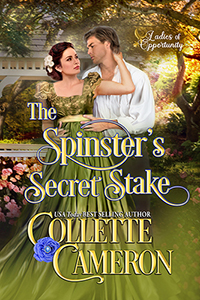
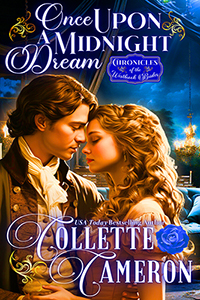
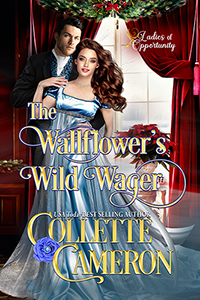


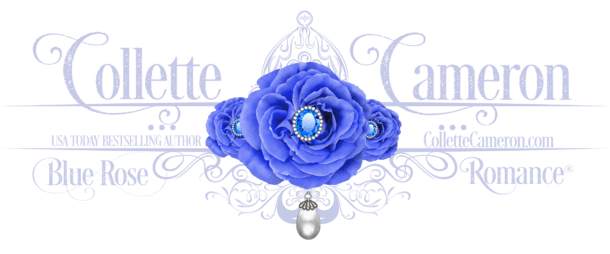
Thanks for having me here as your guest today, Collette. 🙂
I always love having you here! Stop by for a cup of tea anytime!
I love that version of P&P also! As to formality, my dear Ms. Monajem, (?) I view it as a clue to the character and the author’s voice.
My thanks for your kind comment, Ms. Field! 😉 What fun it would be to have a P&P-watching party with a bevy of like-minded ladies.
love p&p ,have the whole set ,every now and then i sit and watch it by myself
Hi, Sharon. I have a copy I can stream, but I’m thinking of getting a DVD or whatever as well. It’s the movie version of a comfort read for me.
BTW!!! Extra prize to anyone who can guess which scene from P&P I was thinking of when I wrote the title to this post. 😉
The wet-shirt scene after swimming when Mr Darcy unexpectedly encounters Miss Bennet visiting Pemberley with the Gardners.
YES!! Go, Lorraine. You win the extra prize. Please email me at [email protected] to claim it.
Oh heck I wrote a whole paragraph and I timed out. In summary, I think the formalities need to be observed for a while until the H and H start becoming closer, it helps show the development of the relationship and helps keep within the era. I think the modern reader needs that to enjoy it with the characters. I think there is room for the sub characters like Mr and Mrs Bennet to keep to the formalities of the time, since they do not love each other at all and it is a way for them to have some sort of respect within their relationship, tenuous though it is. Thank you for such a thought provoking post that made me write reams, only to have it eaten by wordpress, lol.
Best Ann
Dropping formalities as a way of signalling increased intimacy is a useful trick. I tried it with my second book, where the H&H start out as Master Rudhale and Lady Peyton (medieval), then as they get closer she begins calling him William, and finally Will. I’d love to know if it helped at all.
It probably did, Elisabeth. I haven’t read your book, but I usually notice that sort of progression and appreciate it.
LOL, Ann. I think we are in agreement here — start out formal and ease up as soon as possible.
Barbara, I share your dilemma regarding terms of address in writing Regency romances. I usually use title names (or a nickname derived from it) as the hero’s “name.” For others, family members and old friends — and new lovers — get to use first names. I’m not saying that is the way it was, just the way that works for me.
That’s more or less what I do, Diane. Too much formality makes it feel stilted, so I dispense with it whenever it seems appropriate to me, even though it might not quite have been the case two hundred years ago.
Yes there should be formality in historical that’s why we read them. I love to read Milord this and that
Hi, Julie. I’m glad to hear that the formality is a reason for reading historicals. I never thought of it that way. 🙂
I absolutely love the BBC version of P&P. I binge watch it every few years. I love the formal language in movie format, and I don’t mind it in historical fiction because it’s so heavy with historical detail that it feels right, but it doesn’t work for me in historical romance. As you said, there’s no way I could write an intimate scene with them calling each other Mr. and Mrs. I also think the formal language is less accessible to new and younger readers of historical romance, and we really want hook them and keep them reading.
My concerns exactly, Ally.
I like the formality.
Thanks for commenting, Linda. It’s a relief to know that some readers like the formality. I think characters who don’t know each other at first have to start out being formal. Otherwise it just doesn’t ring true.
I really enjoy the formality. I think in a Regency romance, the manners are what gives it the ring of authenticity. I re-read the complete works of Jane Austen every year, and to go from her writing, where she was just reporting the mores of the time, to a regency romance which lacks that can be very jarring.
Hi, Jo. I know exactly what you mean! I find that I have to adjust my expectations depending on the book. If it’s a romp with a lot of modern language and behavior, I tell myself to ignore that and enjoy the story for itself.
That’s my all-time fav P&P version and I glom it several times a year–sigh! I agree with most of the responses here: although very formal language would be period-correct, except for Jane Austen purists, it sounds odd to the modern reader, esp those who don’t read exclusively Regency romance. A craft class once advised “kill your darlings,” which meant don’t use odd interesting words that you love but that will pull the reader out of the story. We want total immersion in the characters, and anything that detracts from that has to go–even if it’s “Mr. Bennett!!”
Hi, Janet. I’m of two minds about getting rid of the odd interesting words. I gained a lot of my vocabulary from reading Heyer and other historical novelists–and usually that was from context. OTOH, as you say, we don’t want to pull the reader out of the story… Sigh.
The formalities is what makes the novel seem to be honest with the period. Agree the intimate scenes don’t flow 🙂
Hi, C.D. Thanks for stopping by! I guess as long as the intimate scene doesn’t take place the moment the h&h meet, there’s time for them to reach a first name basis. OTOH, if it takes place the moment they meet, the formality might make it rather fun!!
I like the formality. Even more than P&P I love the ending of Emma after her and Mr Knightley have got together where she says that she’s been so used to calling him Mr Knightley she’ll only call him George once. It’s a lovely moment.
Obviously I need to reread Emma, because I don’t remember that. I have it on my Kindle…
I confess to not having seen that version of p&p (shame on me!). I think the formality suits the time period but I do prefer when the characters drop it once they get more intimate.
Hi, Linda. I highly recommend that you watch that version!! It’s awesome. The casting is incredible. Every time I watch it, I notice more little nuances of emotion. Just SO well done.
I think its adds a quality to the books and makes them more realistic!
I’m so glad to hear that, Diana. Thanks for stopping by. 🙂
Jane Austen didn’t show us any intimate moments between husband and wife though there are some in one of the movies. I really dislike having men , especially peers, tell someone they just met to call them by their first names. That was an intimacy for private moments after they are engaged and married. I think a report was that the Duke of Devonshire never had his wife call him anything but Devonshire even in intimate moments but I think others with warmer personalities or who loved their wives probably encouraged the use in their own home when talking to each other. In front of guests and at dinner a more formal name might be used. People from other countries complain today that Americans use first names much sooner than they are accustomed to.
Hi, Nancy. I can’t help but wonder if Devonshire required the same formality of his mistress. (If we’re talking about Devonshire/Georgiana/Elizabeth–not a pleasant arrangement.) Over the course of my life the informality has grown by leaps and bounds. I’ve become used to informality, but I would probably be comfortable in a place that was less informal, too.
I ran into this formality between English peers who were husband and wife when I was writing A HOSTAGE TO HERITAGE, set in 1781. I agree that the formality needs to be there to help “place” the story in history, but it still sounded so stilted to my ears. So I got around it every now and then by having the couple address each other with affectionate nicknames like “Dearest” and “Sweetheart.”
Suzanne, I use affectionate nicknames at times, too — it helps!
I tend to keep it formal in dialogue but informal in the narrative. On occasion though I will have my characters address each other by their Christian name, but only after permission is given.
Giving permission to use a Christian name can be a useful way of signaling a change in the relationship between characters–and makes it easier on the author, too. It maintains the period “feel” but allows the author to use what seems more normal to us nowadays.
I received my degree from the Duke of Devonshire (a later model) who was chancellor of my uni at the time. Just name dropping there! Mrs Bennet was of inferior social status to her husband before their marriage, which may account for the formality, although of course we never see them alone together, but always in either family or social circles. There’s also a hierarchy in relation to the daughters: Jane goes first according to age until Lydia marries; as she says, ‘No, Jane, you must go lower, for I am a married woman’ – even though she is far younger. In French we still have Monsieur, Madame, Mademoiselle, but in English that has been lost: when did you last call anyone Sir or Madam or Miss? In the past one showed respect until you became firm friends – and then surnames for men were commonplace. Men still use this form of address in certain circles. Women have moved on!
Hi, Lorraine. Thanks for name dropping–how cool! Lydia was so obnoxious in that scene! But it was very much in character, and it certainly served her right when her two eldest sisters married so much better than she did.
I’ve got Ann’s disease – too wordy, so WordPress ate my original comment! I tend to agree with others, start formal then gradually get less so. I think too much formality in the romantic scenes jars with modern readers although both Austen and Heyer endure! I’m pleased there are so many other fans of the BBC P&P. The performances were superb, particularly Jennifer Ehle IMO. Loved her in it. Spoilt me for any other actress. And the title is from the wet shirt scene! Great post btw Barbara ?
Hi, Janice. I agree–Jennifer Ehle’s portrayal of Lizzy Bennet was brilliant. And yes, you’re right, it’s from the wet shirt scene. 🙂 You’re the second person to guess i–and guess it right. 🙂 If you’d like a consolation prize, email me at [email protected]. 😉
Hi Barbara, loved P & P! I always use formal address but in the love scenes, I drop them. Can’t help it. Formal address in the bedchamber doesn’t work for me.
I agree, Maggi, but the more we say it doesn’t work, the more I want to try a formal love scene just for fun. 😉
There is a need for some formality. There are the gloves, the stays, the cravats; the clothes were more formal, constrictive, and so was the language. However, I agree that “My Lord” in the bedroom does not sound very conducive to passionate romance!
Hi, Monique. Good point about the clothing being restrictive as well!
I always thought that behind closed doors, they probably weren’t as formal as they are in public. Especially, if it was a love match.
Denise
I think you’re right, Denise–so, no problem about using first names in romances once the couple are in love.
And the winner is…Monique! Congratulations! Thanks for all the comments, everyone. 🙂